There is no index in Maggie Nelson’s The Argonauts. Why? I can only assume it’s because Maggie Nelson has better things to do with her time than compile an index, for example debate the epistemological merits of the word slab.
More likely it’s because we get index-like annotations throughout the book, the names of cited writers/thinkers/artists/poets appearing directly in the margins of the text itself, almost as if they’ve been written there by the author herself. Nelson doesn’t quote, exactly; she rather weaves the words and phrases of others into her own dazzling web. It’s part of what makes the narrative feel so rich and resounding. There’s a whole chorus of voices at work in it, albeit one firmly presided over.
Since it was gifted to me in the early summer of this year by a very dear friend, I’ve read — or more specifically, poured-over The Argonauts numerous times. I’ve carried it with me onto subways and trains, cracked its spine in cars, parks, and hotel rooms, kept turning its pages through the deepest hours of transcontinental flights. Every single time, I’ve wept, sometimes so hard I had to put the book aside. Every single time, I’ve laughed. Every single time, I’ve marveled.
I also wondered if reading all the many, many works cited and mentioned throughout this defining book would mean, via some kind of literary transference, that I too would be able to command language and narrative with the same kind of choke-hold as Nelson.
Probably not, but I made us this makeshift index anyway. It goes in chronological order and I used panda sticky notes to make sure I got everything. I hope you enjoy perusing it as much as I loved compiling it.
Texts Quoted
Ludwig Wittgenstein
“Everything that can be thought at all can be thought clearly.”
from Philosophical Investigations
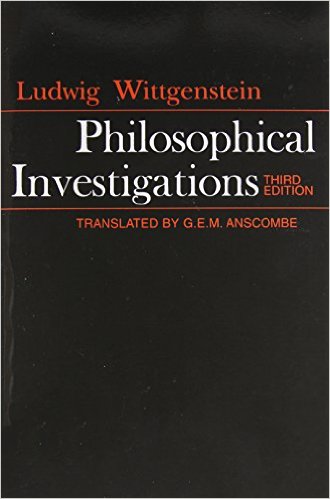
Gilles Deleuze and Claire Parnet
“Nuptials are the opposite of a couple. There are no longer binary machines: question-answer, masculine-feminine, man-animal, etc. This could be what a conversation is — simply the outline of a becoming.”
“What other reason is there for writing than to be traitor to one’s own reign, traitor to one’s own sex, to one’s class, to one’s majority? And to be traitor to writing.”
from Dialogues II
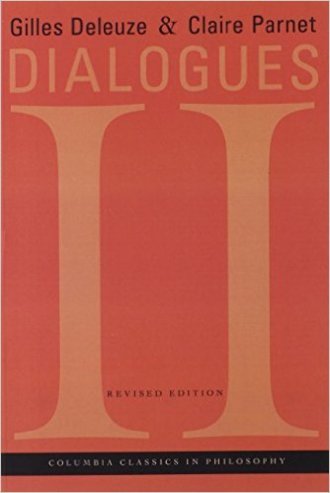
Catherine Opie
“So basically, becoming homogenized and part of mainstream domesticity is transgressive for somebody like me. Ha. That’s a very funny idea.”
from VICE, July 1992

Susan Fraiman
“I want the decline of the domestic as a separate, inherently female sphere and the vindication of domesticity as a an ethic, an affect, an aesthetic, and a public.”
from Cool Men and the Second Sex
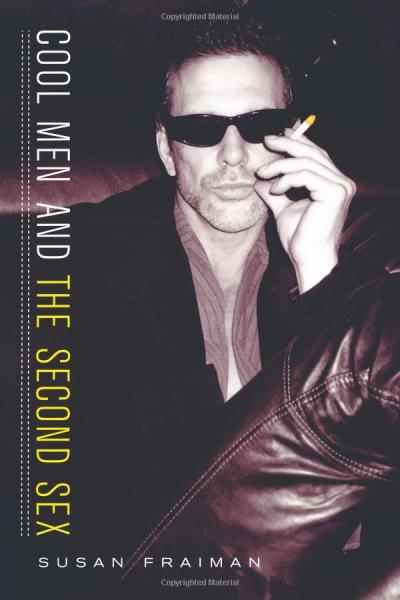
Judith Butler
“The bad reading [of Gender Trouble] goes something like this: I can get up in the morning, look in my closet, and decide which gender I want to be today. […] This is not freedom, but a question of how to work the trap that one is inevitably in.”
from “The Body You Want: Liz Kotz interviews Judith Butler” Artforum, November 1992

Additional Butler Texts:
Bodies That Matter: On the Discursive Limits of Sex
Jacques Lacan
“If a man who thinks he is a king is mad, a king who thinks he is a king is no less so.”
from “Presentation on Psychical Causality” Zizek’s Ontology: A Transcendental Materialist Theory of Subjectivity by Adrian Johnston

D.W. Winnicott
“Babies do not remember being held well — what they remember is the traumatic experience of not being held well enough.”
“Sometimes mothers find it alarming to think that what they are doing is so important and in that case it is better not to tell them.”

Denise Riley
“It’s not possible to to live twenty-four hours a day soaked in the immediate awareness of one’s sex. Gendered self consciousness has, mercifully, a flickering nature.”
from The Language, Discourse, Society Reader
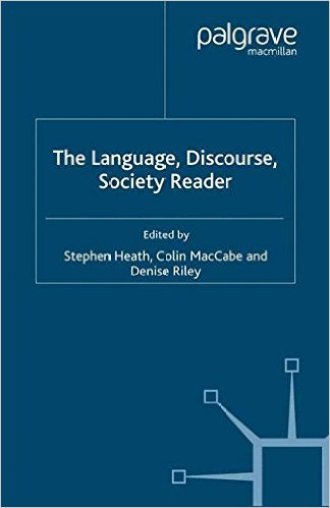
Deborah Hay
“What if where I am is what I need?”
from Using the Sky
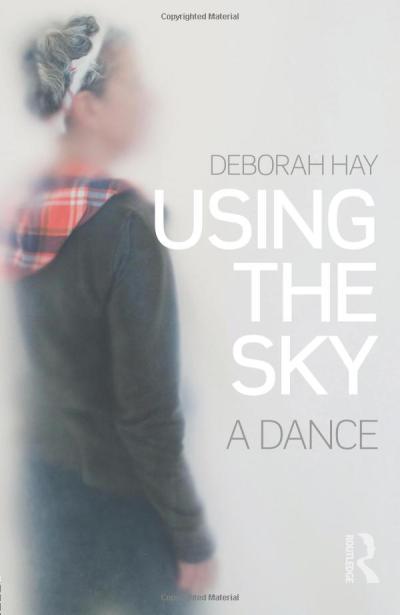
Audre Lorde
“Was I really fighting the spread of radiation, racism, woman-slaughter, chemical invasion of our food, pollution of our environment, the abuse and psychic destruction of our young, merely to avoid dealing with my first and greatest responsibility — to be happy?”
from The Cancer Journals

Sara Ahmed
“[A] moment of queer pride is a refusal to be shamed by witnessing the other as being ashamed of you.”
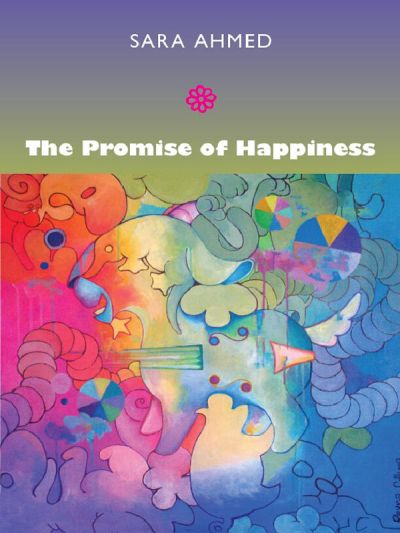
Mary Oppen
“Although I had a strong conviction that my relationship with George was not an affair of the state, the threat of imprisonment on the road frightened us.”
from Meaning a Life

Susan Sontag
“In place of a hermeneutics we need an erotics of art.”
from Against Interpretation and Other Essays

Leo Bersani
“You can be victimized and in no way be radical; it happens very often among homosexuals as with every other oppressed minority.”
from Is the Rectum a Grave?: and Other Essays
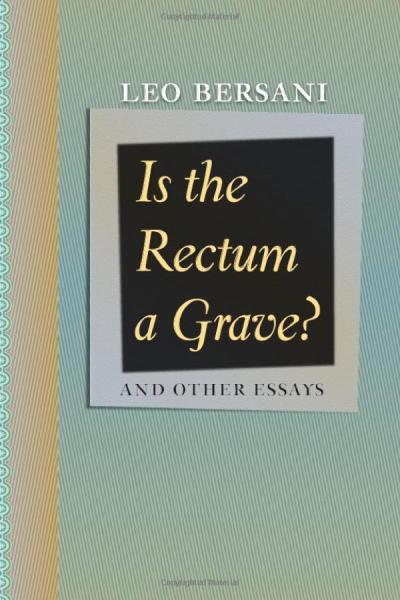
Pema Chödrön
“The only one who knows when you’re using things to protect yourself and keep your ego together and when you’re opening and letting things fall apart, letting the world come as it is — working with it rather than struggling against it. You’re the only one who knows.”
from Start Where You Are: A Guide to Compassionate Living

Eve Kosofsky Sedgwick
“Queer is a continuing moment, movement, motive — recurrent, eddying, troublant.”
from Tendencies

“Given the historical and contemporary force of the prohibitions against every same-sex sexual expression, for anyone to disavow those meanings, or to displace them from the term [queer]’s definitional center, would be to dematerialize any possibility of queerness itself.”
“Even identical genital acts mean very different things to different people.”
from Epistemology of the Closet

Additional Sedgwick Texts:
A Dialogue on Love
“Jane Austen and the Masturbating Girl”
Novel Gazing: Queer Readings in Fiction
Mykel Johnson
“To be femme is to give honor where there has been shame.”
quoted in butch/femme by Sally Munt
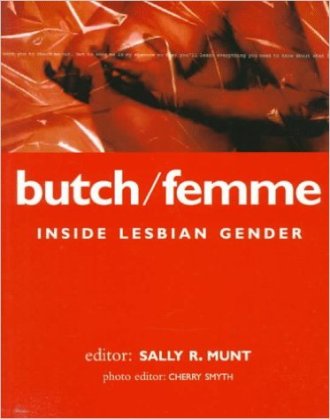
Michael Snediker
“One doesn’t really shatter when one is fucked up, despite Bersani’s accounts of it as such.”
from Queer Optimism: Lyric Personhood and Other Felicitous Persuasions
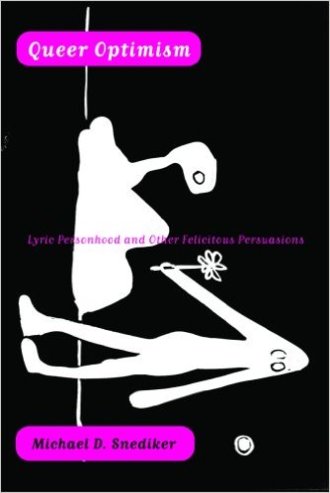
Ralph Waldo Emerson
“Spirit is matter reduced to an extreme thinness: O so thin!”
from Collected Works of Ralph Waldo Emerson, Volume III: Essays: Second Series
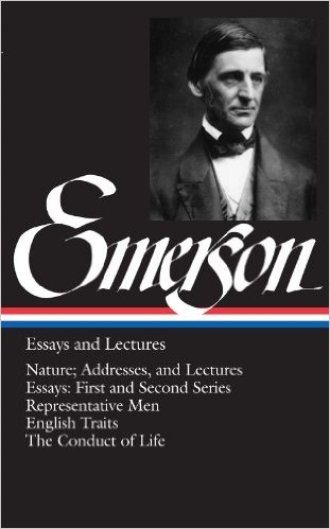
Peter Sloterdijk
“One must reject the temptation to extricate oneself from the affair with outside views of the mother-child relationship; where the concern is insight into intimate connections, outside observation is already the fundamental mistake.”
from Bubbles: Spheres Volume I: Microspherology
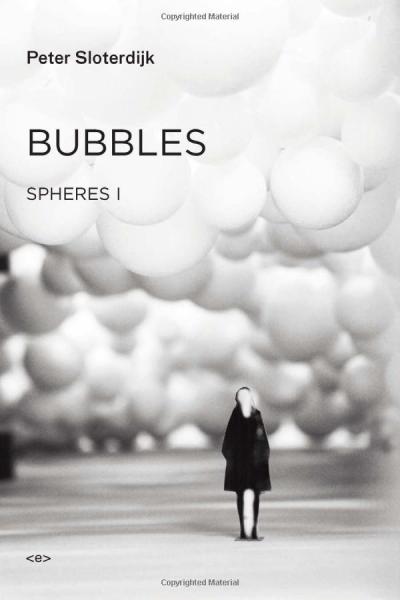
Alice Notley
“He is born and I am undone — feel as if I will / never be, was never born. // Two years later I obliterate myself again / having another child… for two years there’s no me here.”
from “A Baby Is Born Out of a White Owl’s Forehead” Mysteries of Small Houses: Poems
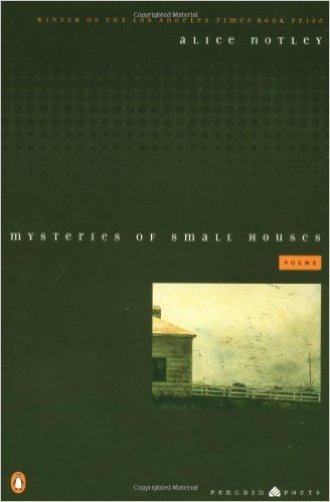
Luce Irigaray
“In other words, the articulation of the reality of my sex is impossible in discourse, and for a structural eidetic reason. My sex is removed, at least as the property of a subject, from the predicative mechanism that assures discourse coherence.”
from This Sex Which is Not One
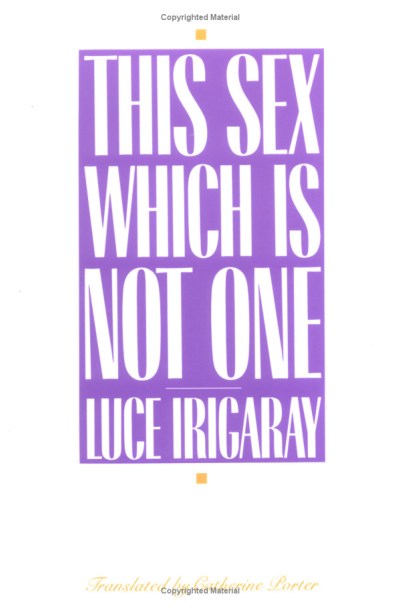
Anne Carson
“What exactly is lost to us when words are wasted?”
from Economy of the Unlost: (Reading Simonides of Keos with Paul Celan)
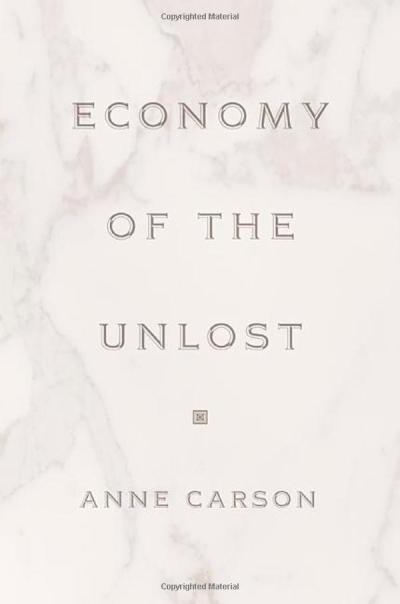
Paul B. Preciado
“I do not want female gender that has been assigned to me at birth. Neither do I want the male gender that transsexual medicine can furnish and that the state will award me if I behave in the right way. I don’t want any of it.”
from Testo Junkie: Sex, Drugs, and Biopolitics in the Pharmacopornographic Era
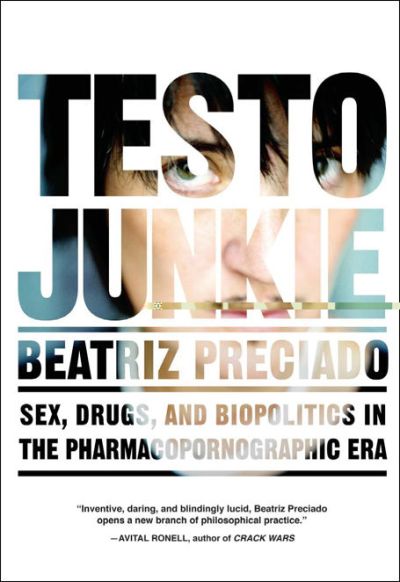
Lucille Clifton
“Turning into my own / turning on in / to my own self / at last / turning out of the / white cage, turning out of the / lady cage / turning at last.”
from “Turning” Good Woman: Poems and a Memoir

William James
“We ought to say a feeling of and, a feeling of if, a feeling of but, and a feeling of by, quite as readily as we say a feeling of blue or a feeling of cold.”
from The Principles of Psychology, Vol. 1

Dodie Bellamy
“And I said, do labia really start to hang? She said, yes, just like men’s balls, gravity makes the labia hang. I told her I never noticed that, I’d have to take a look.”
from The Buddhist
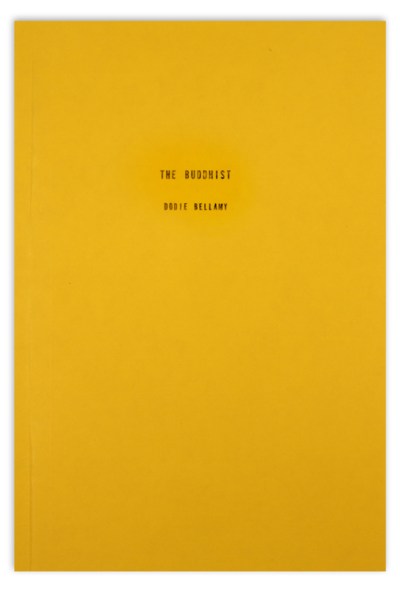
Allen Ginsberg
“One time I thought she was trying to make me come lay her — flirting to herself at the sink — lay back on the huge bed that filled most of the room, dress up round her hips, big slash of hair, scars of operations, pancreas, belly wounds, abortions, appendix, stitching of incisions pulling down…”
from “Kaddish” Kaddish and Other Poems

Dana Ward
“But is ‘mother of’ precise? / Should I say ‘singers of’ instead? … Is it good to call these others as my moms the way I have? Is it care, & if it is have I gave honor in my song?”
Michel Foucault
“I think we have — and can have — a right to be free.”
from “Sex, Power, and the Politics of Identity” The Advocate, August 1984
Lee Edelman
“Queerness names the the side of those not ‘fighting for the children,’ the side outside the consensus by which all politics confirms the absolute value of reproductive futurism.”
from No Future

Julia Kristeva
“[Single or lesbian motherhood] can be seen as [one] of the most violent forms taken by the rejection of the symbolic… as well as one of the most fervent divinations of maternal power — all of which cannot help but trouble an entire legal and moral order without, however, proposing an alternative to it.”
from “Women’s Time” Women, Knowledge, and Reality: Explorations in Feminist Philosophy
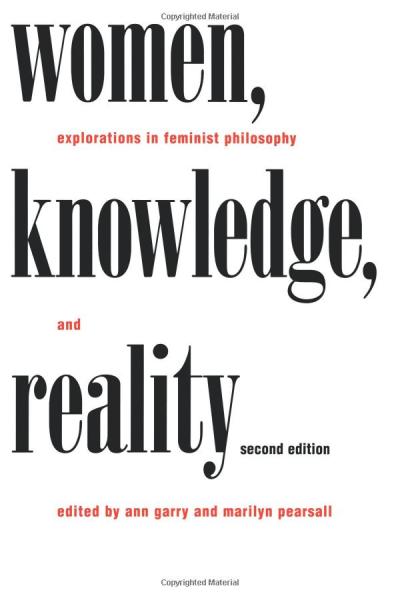
Fanny Howe
“And then they began to speak (liberals, all of them) about their fear of blacks, and their judgement of black, and I had to announce to them that my husband and children were black, before hastily departing. This event has been repeated so many times, in multiple forms, that by now I make some kind of give-away statement after entering a white-only room, one way or the other, that will warn these people there ‘which side I am on.’ […] On these occasions, more than any others, I feel that my skin is white but my soul is not, and that I am in camouflage.”
from The Wedding Dress: Meditations on Word and Life
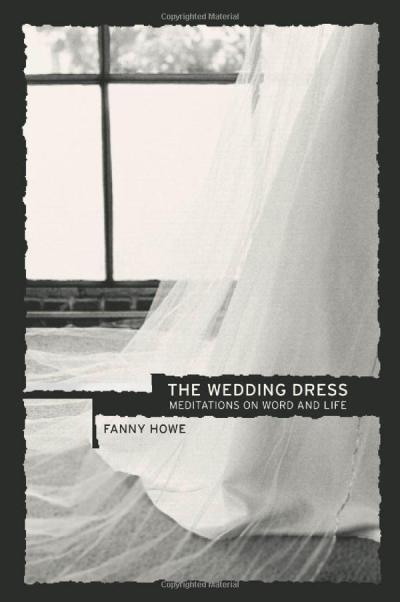
Kaja Silverman
“The extraordinarily difficult task imposed upon the child’s primary caretaker not only by the culture but also by Being itself is to induct it into relationality by saying over and over again, in a multitude of ways, what death will otherwise have to teach it: ‘This is where you end and others begin.’”
from Flesh of My Flesh
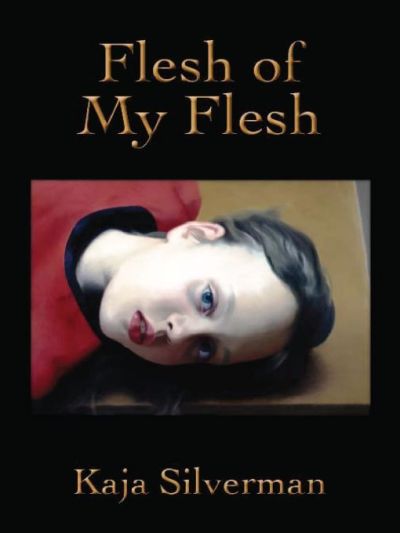
Eileen Myles
“You know so much about people from the second they open their mouths. Right away you might know that you might want to keep them out.”
from “Interview with Eileen Myles” work/book March, 2001
Monique Witting
“One only has to read interviews with outstanding women to hear them apologizing.”
from “A Lesbian is Not a Woman” French Feminism Reader
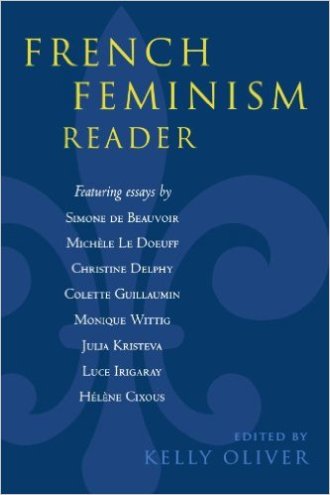
Adam Phillips and Barbara Taylor
“The self without sympathetic attachments is either a fiction or a lunatic…. [Yet] dependence is scorned eve in intimate relationships, as though dependence were incompatible with self-reliance rather than the only thing that makes it possible.”
from On Kindness
Additional Texts Referenced
Jane Gallop, The Daughter’s Seduction: Feminism and Psychoanalysis
Jacques Derrida, The Post Card: From Socrates to Freud and Beyond
Maya Angelou, I Know Why the Caged Bird Sings
Alice Munro, “Wild Swans” The Beggar Maid
Alice Notley, Disobedience
Alison Bechdel, Are You My Mother?
Roland Barthes, Roland Barthes
Maggie Nelson, Jane: A Murder; The Red Parts
Visual Art Referenced
A.L. Steiner, Puppies and Babies
Nan Goldin, The Ballad of Sexual Dependency
Harry Dodge, Selected Video
Annie Sprinkle, 100 Blow Jobs
Catherine Opie, Self-Portrait/Cutting




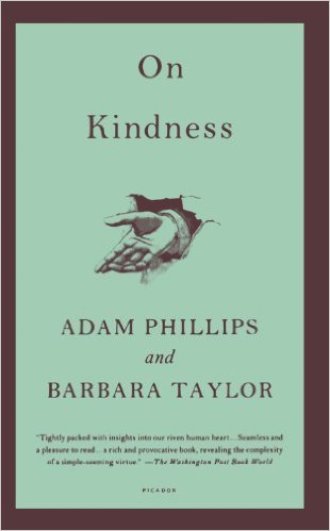




Comments
This is everything I have ever wanted! Thank you! <3
Bless you.
I have a hard time with philosophy so if there’s some kind of guide to some of these that would be cool. Like, I read The Argonauts and didn’t understand some of it. Guess that means I should read it again.
Oh I STILL do not totally understand all of it. I would recommend picking a philosopher you’re interested in, and then looking for what other people have written in-depth about them (like, The Derrida Reader for example). Sometimes those are almost as impenetrable as the original, but sometimes they are also a really good entry point!
This is wonderful. It’s not an index, though. Maybe a bibliography? Or a list of works cited?
All of the above?!
This is fantastic! One correction though–it’s now Paul Preciado.
On it!
Yes yes yes yes.
I actually first read The Argonauts on Kindle so it has a complete list of works cited at the end because the marginalia doesn’t really work on Kindle. But reading it in paperback adds depth to the quotations in the ways that it nods to the authors and thinkers behind the quotes.
I’m very excited about this list. Maggie Nelson for everyone.
This is so interesting I had no idea! I would if the iBook version is the same? Must investigate…
OH MY GOODNESS THANK YOU
JSYK, Preciado’s first name is Paul. The most recent edition of Testo Junkie lists his name as Paul B. Preciado. http://www.feministpress.org/books-n-z/testo-junkie
Thank you! All updated.
Oh, I love this, and there’s so much I want to read! As a professional indexer, though, I can’t let this slide: This is not an index. A bibliography, perhaps.
This, like indices in general, is fantastic.
Now I only need one for “Fun Home”.*
*Which actually isn’t an easy read at all if you have very limited knowledge of modern North American literature…
This is great! Thank you!
OMG. THANK YOU. I was basically attempting to make this myself and failing.